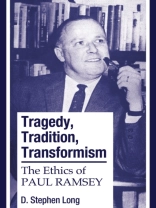In his original interpretation and critique of Paul Ramsey’s ethical thought, D. Stephen Long traces the development of one of the mid-twentieth century’s most important and controversial religious social thinkers. Long examines Ramsey’s early liberal idealism as well as later influences on his work, including the just war doctrine, Reinhold Niebuhr’s realism, H. Richard Niebuhr’s historical relativism, Karl Barth’s neo-orthodoxy, and Jacques Maritain’s integralism. Long overcomes obstacles confronting any Ramsey scholar–such as a theology that cannot be systematized and the complexities of Ramsey’s own writing–and lends sharp insight to the philosophical, theological, and moral issues we face today. Scholars of religious ethics and intellectual thought will find this work to be essential reading.
Despre autor
D. Stephen Long is an ordained United Methodist elder in the Indiana Conference. He is also Professor of Systematic Theology at Marquette University, Milwaukee, WI.







![Copertina de Brian Schrag & Julisa Rowe: Community Arts for God's Purposes [Chinese] 貼近神心意的社群藝術 Copertina de Brian Schrag & Julisa Rowe: Community Arts for God's Purposes [Chinese] 貼近神心意的社群藝術](https://static.worldofdigitals.com/thumb_webp/740/9781645083740.webp)




